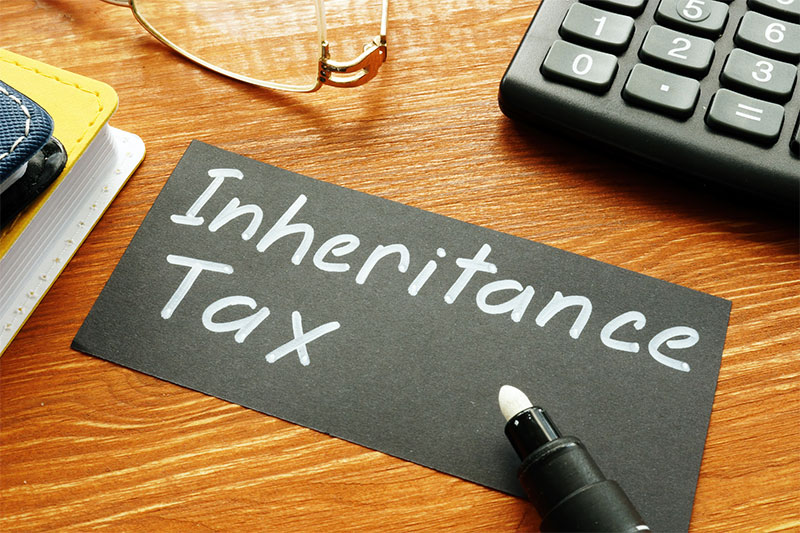Estate Planning Pitfalls and How to Avoid Them
I’m not going to lie. Estate Planning isn’t a subject matter full of fun and excitement, but it is one of the most important exercises you will do. Having spent your life working hard to buy your home and build up your savings, you will want to ensure that anything remaining after your demise, falls into the right hands.
In this blog I want to discuss the most common pitfalls with you and how you can avoid them.
1. Procrastination
The last time I looked at the statistics, at least 50% of us haven’t written a Will. A fact that I find astounding!
However, I do understand why as dying is not a subject any of us want to think about. Additionally, it’s not something we find easy to discuss with our loved ones.
The first step is to have “that conversation” but do it in such a way that you are letting those close to you know that your goal is to make things easier for them in the future. And, stress how important it is to you that your wishes are known and respected.
Once this initial step is done you are on your way.
2. Choosing the wrong executor
Being an executor to someone’s will, is a big responsibility. This person is responsible for the smooth administration of your estate after your demise.
With this in mind, you need to be thinking of someone that you trust implicitly, that is organised and potentially capable of complex decision making. Don’t just choose a person because you like them, or they are close to you. It’s a matter that requires a lot of thought.
3. Omitting certain assets
In some instances, people forget to include certain assets, leaving their will open to ambiguity.
My advice to you is “take your time”. You’ve come this far and are finally writing your will so make sure you capture all your wishes. A good way to do this is to write an inventory of all your assets and ensure they are all addressed.
And, don’t forget digital assets, for example:
- Online accounts
- Crypto currencies
- Social media profiles
- Photos or possibly music
In the digital age we are in, it’s important these are captured and managed in the same way that physical assets are.
4. Not seeking professional advice
DIY wills are legal BUT, they may not cover all the legal requirements or consider potential complications. Consulting with a legal professional ensures your will is comprehensive and legally binding.
5. Not paying attention to detail
When you’re writing you will there’s no room for misinterpretation, it’s important to be mindful about the wording. With assets, your will speaks from when you have passed away and one very small oversight can lead to ambiguity.
For example, rather than using words like “I would like to gift my jewellery to my youngest granddaughter” it is better to be more specific and use “I would like to gift my white gold diamond pendant, wedding and engagement rings to my granddaughter Amelie Serena Johnson”.
The reason for this is things change. Since writing your will there could be 3 more grandchildren. As such it’s important to be mindful of this at the time of writing.
6. Ignoring Inheritance Tax Implications
No one wants to pay more tax that is necessary, especially when it’s paid at the rate of 40% and there are ways that it can be avoided.
Unless you seek professional advice, it’s unlikely that you are going to be clear on all the Inheritance Tax rules.
For example, what the threshold is, what the exemptions are, what the rules are on gifting, and when to put assets into a trust. I’m not going to detail those here, but you can find more information in my blog by clicking this link https://daviesestateplanning.co.uk/wills/inheritance-tax-planning/
7. Overlooking the guardianship for minor children
If you have minor children, failing to nominate a legal guardian in your will can lead to uncertainty about their care after your passing.
This is possibly one of the most important things to remember. You want to have peace of mind that your children are going to be loved and cared for by someone you trust, should anything happen to you while they are still young.
8. Not having your will correctly signed and witnessed
Quite simply, unless your will is properly signed and witnessed, the document will be rendered invalid.
It is imperative that your will is signed in the presence of two independent witnesses, and then have it signed by those witnesses in your presence.
9. Failing to provide for contingencies
Failing to plan for unforeseen circumstances, such as the death of a beneficiary before you die, can lead to unintended outcomes. As such, it’s important to include contingency plans in your will.
10. Failure to update
Life circumstances change, such as marriages, divorces, births, and deaths. Failing to update your will accordingly may result in outdated or inaccurate instructions.
My recommendation is to review your will every 3 to 5 years, or in the event of a life changing circumstance.
Conclusion
When you write your will, it’s important you get it right. If you would like more information on writing your will, please do not hesitate to contact Davies Estate Planning here or by calling 0808 146 9295.







